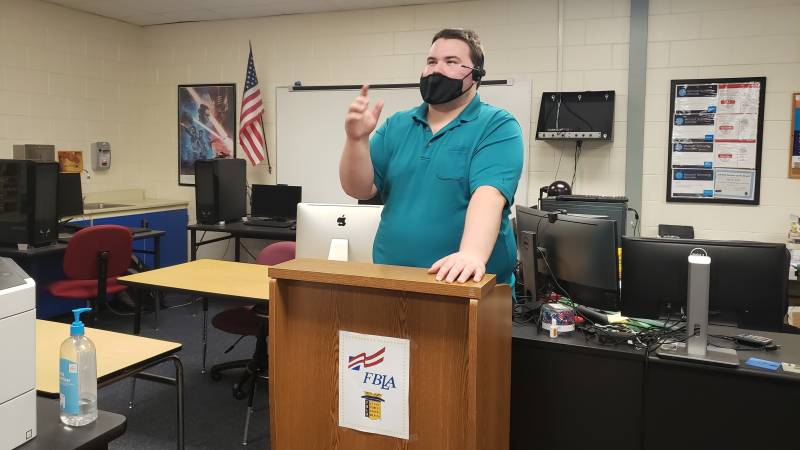At age 77, McConnell is now working to combat false information aimed at young people.
"We need to understand this so we can appreciate what's happening to us, and be able to not only understand it, to be able to navigate through it," McConnell said. "That's what I call digital literacy."
McConnell is executive director of Cyber Florida, which is based at the University of South Florida in Tampa. The group works with kids throughout the state at universities, high schools, and even those in younger grades.
Expanding the program
Cyber Florida helped set up the cybersecurity program now being taught at many Florida schools. The new project, Cyber Citizenship, is even more ambitious.
"We think if we can do this for Florida, we can replicate it across the nation," he said.
Separating fact from fiction online is a major challenge for the country as a whole, as evidenced by the swirling claims surrounding last year's presidential election and the ongoing pandemic.
Yet schools nationwide are still trying to figure out how to teach digital skills to a younger generation that increasingly lives, studies and plays online.
At Countryside High School, computer teacher Jason Felt stresses that he steers clear of politics, but does have informal discussions on how disinformation is weaponized.
"One of the things I've talked to my students about are nation-state actors, and how nation-state actors try to attack the United States, create websites, web servers, and that people will pass the information around," he said.
The U.S. intelligence community found that in both the 2020 and 2016 elections, Russia employed a range of online methods in an attempt to help former President Donald Trump, and undermine his Democratic rivals, Hillary Clinton and President Biden.
Felt said he mostly teaches kids who already have good computer skills, and some are preparing for a career in the tech industry.
Teaching all grades
The expanded program now in the works aims to make digital literacy something all Florida students get, at several grade levels, before they finish high school.
Another key partner in this project is New America. The Washington think tank is curating dozens of the most promising online tools and building a site designed to be user-friendly for teachers, parents and school systems nationwide.
"What we want to do with this project is create a one stop-shop, a searchable database," said Lisa Guernsey, head of the Teaching, Learning, & Tech program at New America. "We're designing it for Florida educators first. But from the beginning, we'll also make sure it's open to all educators across the country."
New America plans to have this portal up on its website by summer. Teachers and school districts could search for the material that best suits their needs, Guernsey said.
"Sometimes a teacher may just want to help students understand what deep fakes are," she said. "In other cases, a teacher may want to spend several weeks talking about what it means to verify sources."
There's no date yet for the cyber disinformation classes in Florida, but teacher Jason Felt says it can't come soon enough.
"The Internet is a wonderful tool. It's connected us in a way that's never really been seen before. But it's a blessing and it's also a curse."
Teaching students the difference, he says, is a huge challenge.
The partners for the Cyber Citizenship project are in the process of compiling a full database of online resources. So far, they say, they will likely include resources such as Checkology, Learn to Discern, Breaking Harmony Square, and COR: Civic Online Reasoning.
Follow Greg Myre @gregmyre1.
Copyright 2021 NPR. To see more, visit https://www.npr.org.
9(MDAxOTAwOTE4MDEyMTkxMDAzNjczZDljZA004))



9(MDAxOTAwOTE4MDEyMTkxMDAzNjczZDljZA004))